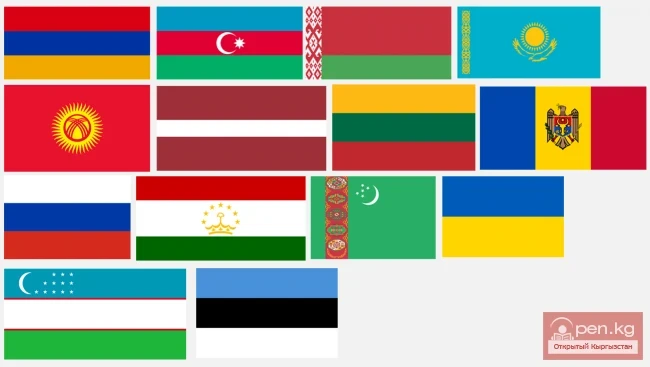The Foreign Policy of Kyrgyzstan
Kyrgyzstan is a state in the Central Asian region, whose location has significant geopolitical and geo-economic importance as a connecting bridge between the West and the East, as well as the North and the South. Kyrgyzstan, like other Central Asian states, is a meeting point of four cultural and civilizational layers: European, Arab-Muslim, Persian, and Chinese. This circumstance, on one hand, created favorable conditions for the development of bilateral and multilateral cooperation in various areas, and on the other hand, necessitated the conduct of a flexible and balanced foreign policy.
The foreign policy of the Kyrgyz Republic since gaining independence has been based on the provisions of the Constitution, the Declaration of State Independence, norms of international law, and adherence to the goals and principles of the UN and OSCE. Being an organic continuation of domestic policy, Kyrgyzstan's foreign policy reflected the consolidated interests of the multinational, multi-confessional people of the republic.
During this period, Kyrgyzstan actively developed diplomatic and other relations with most countries of the world. The realization of Kyrgyzstan's national interests was primarily ensured by the development of friendly, mutually beneficial relations with neighbors, major powers, and integration associations of the global community.
The priorities of foreign policy that ensured national interests were structured as follows:
• ensuring and protecting sovereignty and territorial integrity;
• creating favorable external conditions for implementing economic and democratic reforms;
• protecting the rights, freedoms, and interests of Kyrgyz citizens.
Priority directions of foreign policy:
• Russia;
• Western vector;
• Asian vector;
• Regional vector.
The main tasks of foreign policy during this period were:
• strengthening stability and security in the region;
• developing good-neighborly relations with neighboring states and deepening integration processes in Central Asia;
• promoting the strengthening of the CIS and realizing the economic and political potential of the Commonwealth;
• strengthening friendly ties with highly developed countries of the West and East;
• developing cooperation with UN organizations, its specialized agencies, regional international organizations, and financial and economic institutions;
• strengthening cooperation with developing countries and transitional economies.
In a concentrated form, Kyrgyzstan's foreign policy concept was expressed in the principle of "AND-AND," rather than "OR-OR." Kyrgyzstan adhered to this line, particularly in relations with major powers.
In geopolitical terms, the Kyrgyz Republic positioned itself as a country of regional significance, unable to claim a global role in world politics on par with major countries. However, like any state, Kyrgyzstan had its own national interests, for the sake of which it structured its foreign policy and national security framework, aligning as much as possible with the interests of the global community.
Kyrgyzstan directly faced the threat of international terrorism. In 1999-2000, dramatic events occurred in southern Kyrgyzstan related to the invasion of well-armed bandit formations of international Islamic terrorists, who had years of combat experience in Afghanistan and Tajikistan. International terrorists employed barbaric methods such as hostage-taking, including foreign nationals, and the killing of civilians. Kazakhstan, Tajikistan, Uzbekistan, and Russia provided decisive and firm support for Kyrgyzstan's efforts to eliminate these bandit formations. The states of the region demonstrated to the international community their determination to jointly and coordinatedly counteract acts of international terrorism. This once again confirmed that it is vital for Kyrgyzstan to create a multi-layered and multi-level security system that reliably protects the national interests of the republic.
Kyrgyzstan implemented its foreign policy through both collective instruments of a global and regional nature established in the global community and through bilateral and multilateral cooperation with its partners.
At the global level, the main partner was the United Nations as a universal body that encompasses almost all aspects of international life through specialized agencies operating under its auspices.
At the regional level, these include the Collective Security Treaty Organization, the Eurasian Economic Community, the Commonwealth of Independent States, the Shanghai Cooperation Organization, the European Union, the Organization for Security and Cooperation in Europe, the Economic Cooperation Organization, the Organization of Islamic Cooperation, and the cooperation system with NATO and other organizations.
Read also:

Prose Writer, Critic Dairbek Kazakbaev
Prose writer and critic D. Kazakbaev was born on June 20, 1940, in the village of Dzhan-Talap,...

The Poet Baidilda Sarnogoev
Poet B. Sarnogoev was born on January 14, 1932, in the village of Budenovka, Talas District, Talas...

Poet, Prose Writer Tash Miyashev
Poet and prose writer T. Miyashev was born in the village of Papai in the Karasuu district of the...

Tourist Area Management Program
The project "USAID Business Development Initiative" (BGI), within the tourism...

Poet, Prose Writer Medetbek Seitaliev
Poet and prose writer M. Seitaliev was born in the village of Uch-Emchek in the Talas district of...

Types of Higher Plants Listed in the "Red Book" of Kyrgyzstan (1985)
Species of higher plants removed from the "Red Book" of Kyrgyzstan (1985) Species of...
Poet, Prose Writer Isabek Isakov
Poet and prose writer I. Isakov was born on September 1, 1933, in the village of Kochkorka,...

Prose Writer, Journalist Djapar Saatov
Prose writer, journalist Dzh. Saatov was born on February 15, 1930, in the village of Alchaluu,...

The title translates to "Poet Soviet Urmambetov."
Poet S. Urmambetov was born on March 12, 1934, in the village of Toru-Aigyr, Issyk-Kul District,...
Omuraliyev Ashymkan
Omuraliyev Ashymkan (1928), Doctor of Historical Sciences (1975), Professor (1977) Kyrgyz. Born in...

Poet, Critic, Literary Scholar Omor Sooronov
Poet, critic, literary scholar O. Sooronov was born in the village of Gologon in the Bazar-Kurgan...

Types of Insects Listed in the 2004 IUCN RLTS Not Included in the Red Book of Kyrgyzstan
Insect species listed in the 2004 IUCN RLTS, not included in the Red Book of Kyrgyzstan 1....
The Poet Gulsaira Momunova
Poet G. Momunova was born in the village of Ken-Aral in the Leninpol district of the Talas region...

The Poet Sooronbay Jusuyev
Poet S. Dzhusuev was born in the wintering place Kyzyl-Dzhar in the current Soviet district of the...

The Poet Kubanych Akaev
Poet K. Akaev was born on November 7, 1919—May 19, 1982, in the village of Kyzyl-Suu, Kemin...

Poet Dzhaparkul Alybaev
Poet Dzh. Alybaev was born on October 12, 1933, in the village of Birikken, Chui region of the...

Prose Writer Kachkynbay (KYRGYZBAI) Osmonaliev
Prose writer K. Osmonaliev was born on March 5, 1929, in the village of Chayek, Jumgal district,...
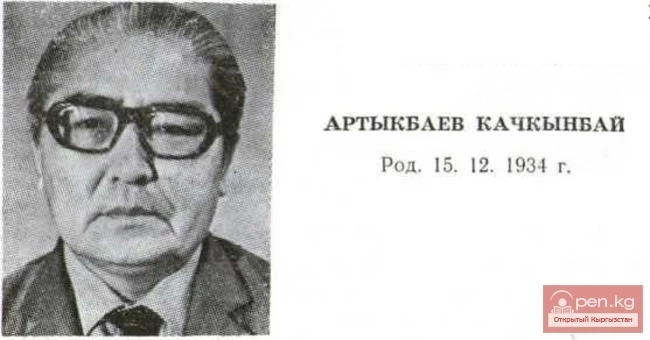
Critic, Literary Scholar, Poet Kachkynbai Artykbaev
Critic, literary scholar, poet K. Artykbaev was born in the village of Keper-Aryk in the Moscow...

The Poet Tenti Adysheva
Poet T. Adysheva was born in 1920 and passed away on April 19, 1984, in the village of...
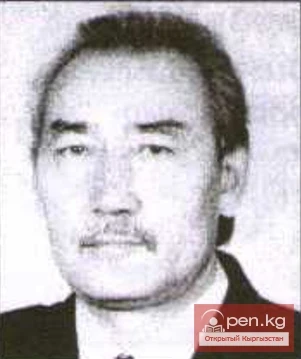
Kenesariyev Tashmanbet
Kenesariyev Tashmanbet (1949), Doctor of Historical Sciences (1998), Professor (2000) Kyrgyz. Born...

The Poet Subayilda Abdykadyrov
Poet S. Abdykadyrova was born in the village of Sary-Bulak in the Kalinin district of the Kirghiz...
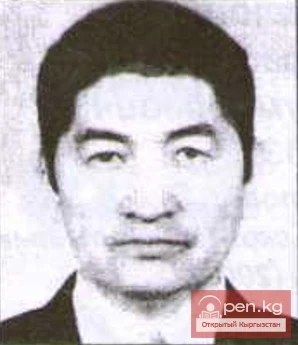
Chorotegin (Choroev) Tynchtykbek Kadyrmambetovich
Chorotegin (Choroев) Tynchtykbek Kadyrmambetovich (1959), Doctor of Historical Sciences (1998),...

Poet, Linguist Kasym Tynystanov
Poet and linguist K. Tynystanov was born on September 9, 1901—November 6, 1938, in the village of...
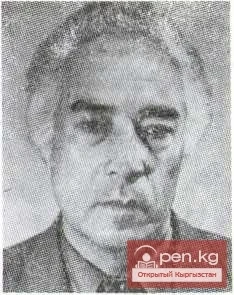
Poet, storyteller-manaschi Urkash Mambetaliev
Poet, storyteller-manaschi U. Mambetaliev was born on March 8, 1934, in the village of Taldy-Suu,...

The Poet Alymkan Degenbaeva
Poet A. Degenbaeva was born on May 12, 1941, in the village of Belovodskoye, Moscow District,...

Poet Mukambetkalyy Tursunaliev (M. Buranaev)
Poet M. Tursunaliev was born on January 11, 1926, in the village of Alchaluu, Chui region of the...

Critic, Literary Scholar A. Sadykov
Critic and literary scholar A. Sadikov was born in the village of Kara-Suu in the At-Bashinsky...

Poet Dzholdoshbay Abdykalikov
Poet J. Abdykalikov was born in the village of Tashtak in the Issyk-Kul district of the Issyk-Kul...

Poet, Playwright J. Sadykov
Poet and playwright J. Sadykov was born on October 23, 1932, in the village of Kichi-Kemin, Kemin...
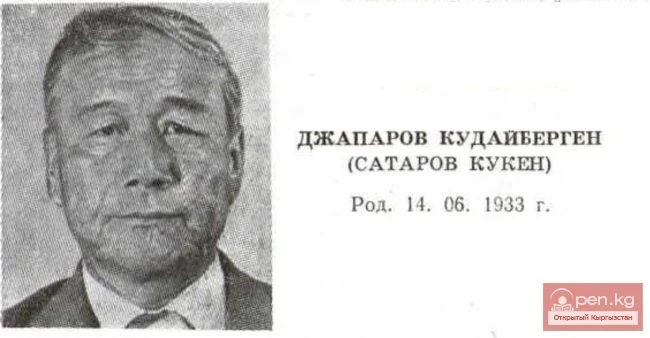
Prose Writer Kudaibergen Dzhaparov
Prose writer K. Dzhaparov was born in the village of Saz in the Sokuluk district of the Kyrgyz SSR...
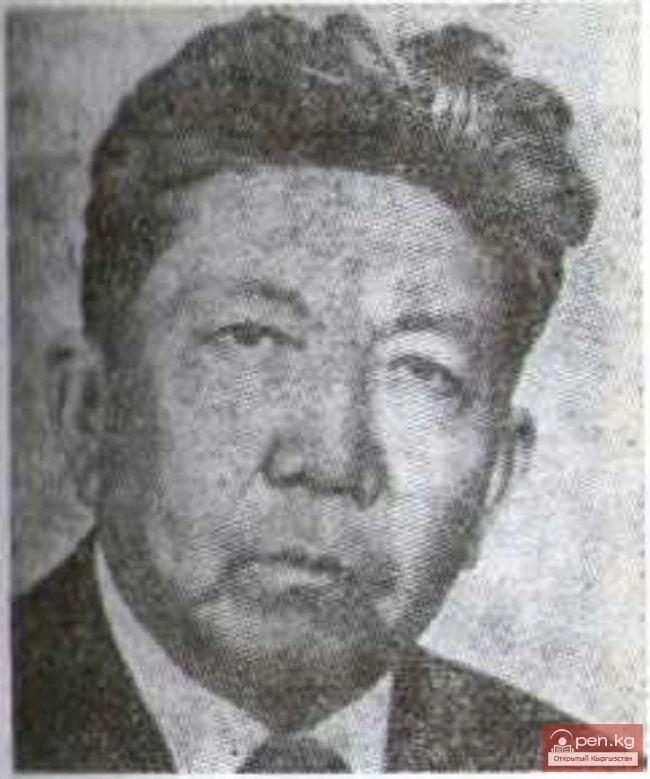
Poet Abdilda Belekov
Poet A. Belekov was born on February 1, 1928, in the village of Korumdu, Issyk-Kul District,...
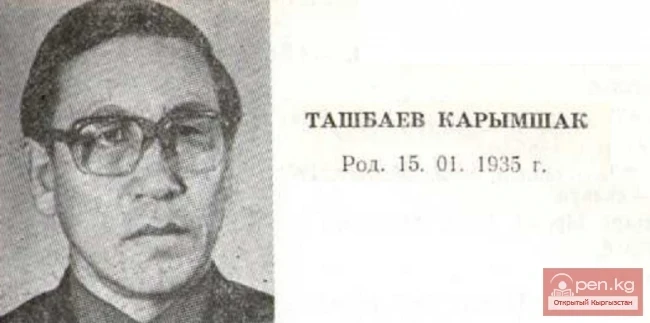
Poet Karymshak Tashbaev
Poet K. Tashbaev was born in the village of Shyrkyratma in the Soviet district of the Osh region...

The Poet Akbar Toktakunov
Poet A. Toktakunov was born in the village of Chym-Korgon in the Kemin district of the Kyrgyz SSR...

The Poet Smar Shimeev
Poet S. Shimeev was born on November 15, 1921—September 3, 1976, in the village of Almaluu, Kemin...

Poet Abdravit Berdibaev
Poet A. Berdibaev was born on 9. 1916—24. 06. 1980 in the village of Maltabar, Moscow District,...
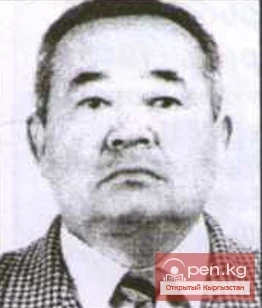
Zhorobekov Zholbors
Zhorobekov Zholbors (1948), Doctor of Political Sciences (1997) Kyrgyz. Born in the village of...

Poet Mariyam Bularkieva
Poet M. Bularkieva was born in the village of Kozuchak in the Talas district of the Talas region...

The Poet Jumakan Tynymseitov
The poet J. Tynymseitova was born on 11. 1929—29. 07. 1975 in the village of On-Archa in the...

Poet Mederbek Akimkodzhoev
Poet M. Akimkodzhoev was born in the village of Bazar-Turuk in the Jumgal district of Naryn region...

Poet Akynbek Kuruchbekov
Poet A. Kuruchbekov was born on December 5, 1922 — November 29, 1988, in the village of Eryktu,...

Critic, Literary Scholar Abdyldazhan Akmataliev
Critic and literary scholar A. Akmataliev was born on January 15, 1956, in the city of Naryn,...
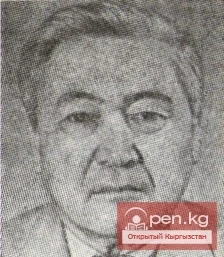
Prose Writer, Translator Bakan Sexenbaev
Prose writer and translator B. Sexenbaev was born on August 20, 1932, in the village of Burana,...

The Poet Suerkul Turgunbaev (S. Zhan)
Poet S. Turgunbaev was born in the village of Besh-Kadam in the Bazar-Kurgan district of the Osh...

Poet, Art Historian Sarman Asanbekov
Poet and art critic S. Asanbekov was born in the village of Aral in the Talas region of Kyrgyzstan...

Literary scholar, prose writer, poet Dzaki Tashtemirov
Literary scholar, prose writer, poet Dz. Tashtemirov was born on October 15, 1913—October 7, 1988,...
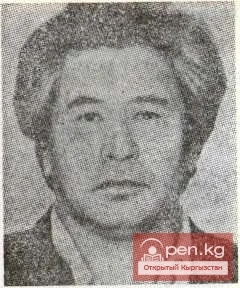
Poet Ramis Ryskulov
Poet R. Ryskulov was born on September 9, 1934, in the village of Kyzyl-Tuu, Moscow District,...

Communist Party, Komsomol, Trade Union of Soviet Kyrgyzstan
Development of Soviet Kyrgyzstan On October 14, 1924, the second session of the All-Russian...
